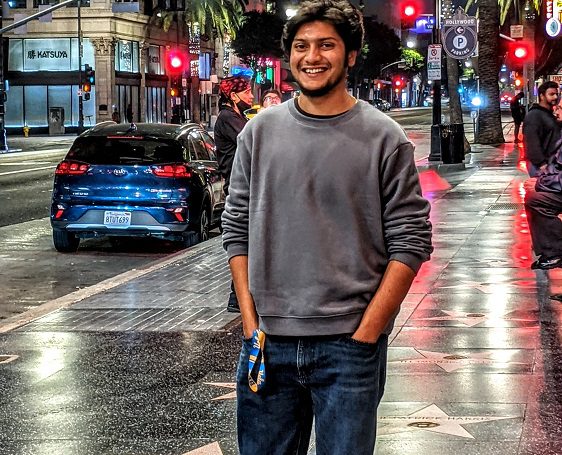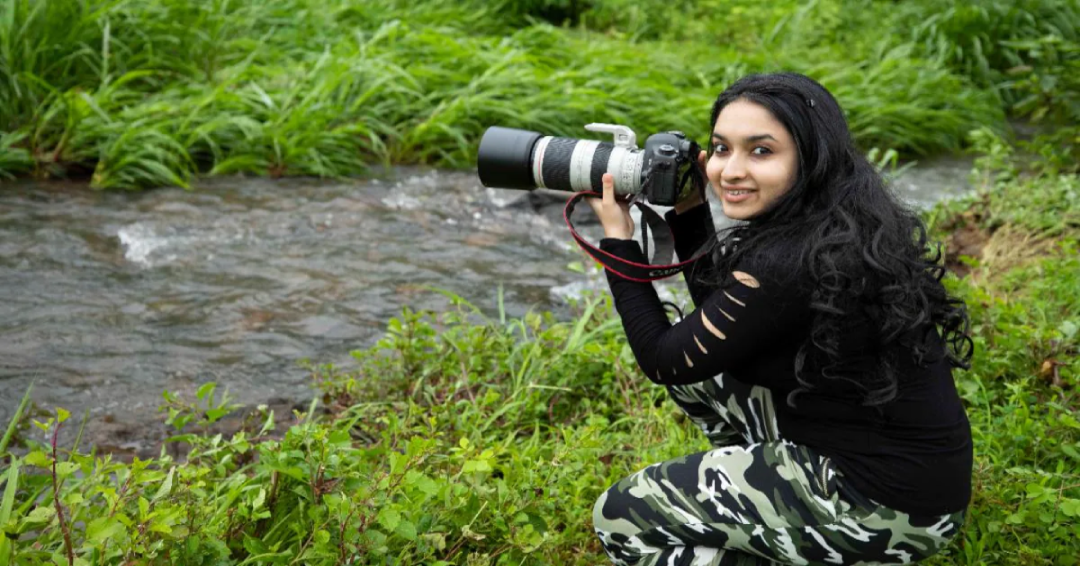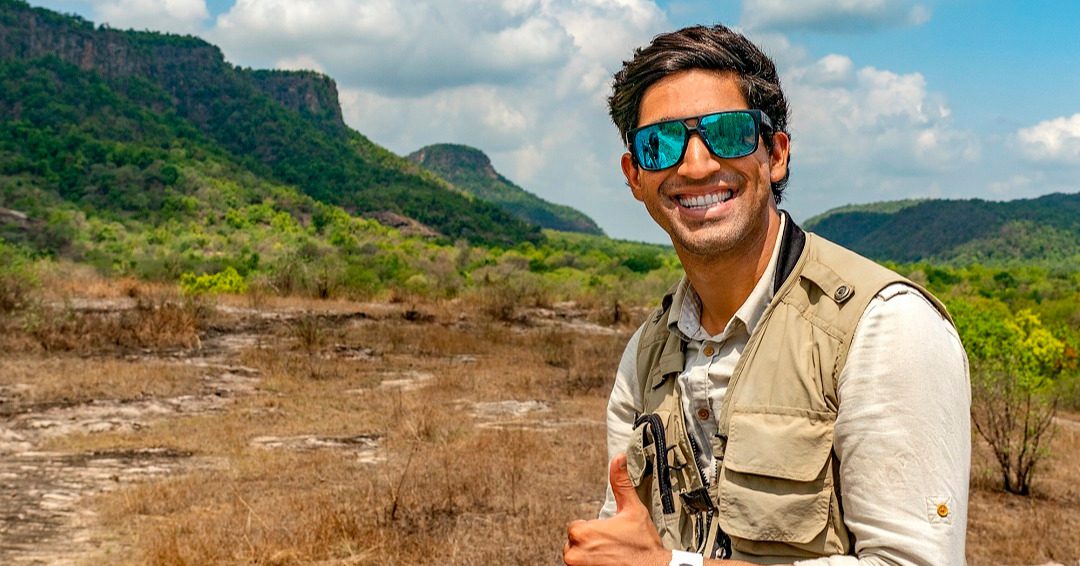As a child, Shreyas Ayaluri would spend hours scribbling just about anything on pieces of paper. It made no sense to anyone but him. From doodles, shower thoughts, ideas, catch phrases or just to-do-lists – he would be at it for most part of the day. Once, his teacher suggested he carry a miniature note-pad to capture all his haphazard thoughts and be more efficient with his scribbling. He followed the advice religiously. Now, at 27, he continues to scribble, creates magic out of it and is unstoppable.
His flair for writing has led this US-based Global Indian to become an acclaimed screenwriter. His work has been featured at some of the best screenwriting festivals in the world while he makes strides in Hollywood with his latest screenplay Elvis Escobar and Juniper Lea which is all set to grace the silver screen in 2021. That is not all: The latest feather in his cap is writing a song for Broadway which has him on cloud nine.

Shreyas Ayaluri with Quentin Tarantino
An uphill climb
“While all this is magical, I would be lying if I told you that the path was all sunshine and rainbows. I cannot fathom that I wrote a song for Broadway,” says a beaming Shreyas, speaking exclusively to Global Indian. Based out of Los Angeles, the youngster from Hyderabadlikes to call himself a creative addict. His journey from being a scribbler to a screenwriter is as fascinating as it can get. Only, that screenwriting was never on his mind in his early days.
“After pursuing engineering, I gave advertising a shot. I worked as a copywriter for two years, trying to quench my creative thirst. It was my stint at the advertising firm that bridged the gap between science and arts,” informs Shreyas, whose life took a 180 degree turn when he saw his first piece of work splashed across a huge billboard while walking home one day. “It moved me. All those feelings, emotions that I didn’t know existed in me, gushed through my body and I just knew it,” recalls Shreyas, whose work has been featured and placed at the best screenwriting festivals including the likes of The Austin Film Festival, ScreenCraft, The Script Lab, StoryPros Awards and Film Empire.


Shreyas Ayaluri with Jeff Goldblum
While his stint in the ad agency where he wrote ads for major F&B brands changed his perception of telling tales and selling stories, which he refers to as the first step into the hero’s journey, the determined youngster leapt at an opportunity to study screenwriting and film in the US.
It’s all in the family
Growing up in a traditional South Indian family, expectations were set and choices were made for Shreyas, whose father AK Srinivas was in the Indian Air Force. The options before him were straight forward, either join the Armed Forces or pursue engineering. “Luckily, my parents got my enthusiasm and my flair. They pushed me to explore further,” informs the award-winning screenwriter, who first studied screenwriting at New York Film Academy and later at University of California.
Shreyas has written four feature length screenplays, two pilots and has multiple shorts to his credit. His very first screenplay Amuse Me fetched him an award for best screenplay and is still going strong at film festivals. The screenwriter says he loves to write custom comedies with a heart, soul and a mind of its own. His latest feature is called Elvis Escobar and Juniper Lea which is a romantic comedy. “The song I am writing for Broadway is still in production,” informs Shreyas, who grew up listening to ABBA and watching movies like Top Gun over and over again. Shreyas, who has been in the US since 2018, also worked briefly with General Motors as a quality auditor.


Shreyas with a friend
Rooted in India
But like all successful people, Shreyas’ journey came with a lot of ups and downs. “There were times when things got rough, financially, especially during the pandemic, as being an artiste is not a 9-to-5 job and one might work on a project for months without a paycheck. But one has to do what it takes to stay in the game and that’s what I did. Moonlighting and juggling different roles and working for less, it only brought me closer to my dream and made me realize that if you crave art that bad, you just have to be at it like a creative addict,” says Shreyas, who did his schooling from Kennedy High and thereafter got admission in Page Academy in Hyderabad.
While at boarding school, Shreyas recalls how he would write letters to his mother Sridevi Ayaluri, telling her how much he disliked being there. “I didn’t hold back; I went on and on about how things could be different if I were back home. But what my mother remembers is how creatively I would tell that story through the letter,” says Shreyas, who was the second rounder at the Austin Film festival of both 2019 and 2020 besides receiving several accolades for his work internationally.
So, what advice does Shreyas have for anyone starting off on a journey? “If anyone out there is still contemplating to take that first plunge, I say do it. It’s going to be difficult, scary and most likely you will fall. Pick yourself up, do it again and fall again. Falling may not be fun, but it’s just part of the process. I fall all the time but only I’ve learnt to bounce back quicker,” he says. Shreyas believes that every song has a story to tell and every story is a song, if understood well. “Be it stating facts or dreaming up a fiction, I try to put the right words to go with,” he says adding that the one thing that helps ride the tide is his writing.



